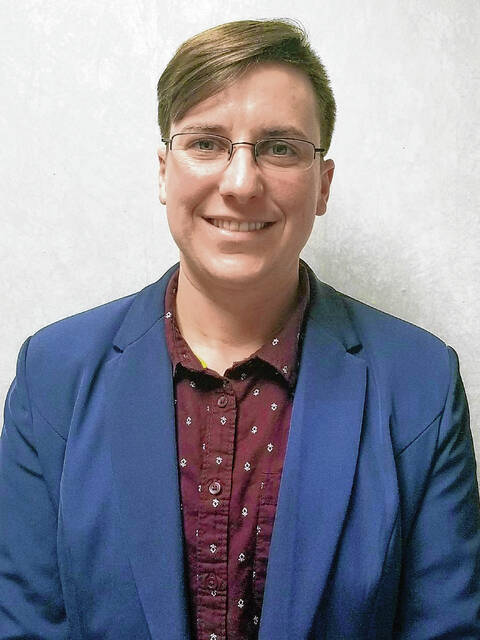In June 2021, Seymour and Jackson County opted out of statewide lawsuits against opioid manufacturers and distributors after signing onto them in 2018.
Now, both want back in.
The Seymour City Council opted back into the lawsuits in a 7-0 vote Monday after city attorney Christina Engleking made that recommendation.
County attorney Susan Bevers advised the county commissioners to do the same during their meeting Tuesday morning at the courthouse annex. That vote was 2-0 as Commissioner Drew Markel was not present at the meeting.
Indianapolis-based law firm Cohen and Malad LLP represents both Jackson County and Seymour in the lawsuits. Bevers said the law firm is part of a national consortium of attorneys that represents different units of government involved in the litigation.
On July 21, 2021, Indiana Attorney General Todd Rokita announced a $507 million settlement agreement for Indiana with Johnson and Johnson, AmerisourceBergen, Cardinal Health and McKesson.
Engleking said the city initially opted out of the lawsuits so some deficiencies could be addressed in legislation enacted in 2021 by the Indiana General Assembly regarding the administration of opioid litigation and settlements with those four companies. That legislation was put in place before the settlement was announced.
She said three issues in that legislation have now been addressed: Attorney’s fees have been decreased from 25% to 8.7%; municipalities are allowed to pursue litigation against other opioid-related entities; and settlement money distribution is no longer based on population.
That means Seymour will receive twice as much from the settlement than if the legislation hadn’t been amended, Engleking said.
Bevers said Gov. Eric Holcomb signed the amended legislation in March, and lawmakers in the recently completed legislative session pushed to have settlement money be allocated more to local units because of the impact that the opioid crisis had in those areas.
Councilman Chad Hubbard asked if the city can still opt back out if something changes with the settlement that the council might not agree with. Engleking said she didn’t believe anything will be changed again and there’s a tight April deadline for settlement payouts.
Councilman Seth Davidson asked about how much money the city has spent on its opioid lawsuit that might have cost taxpayer money. Engleking and Seymour Mayor Matt Nicholson said nothing has been spent to date.
Nicholson said opting back into the lawsuits means the city can stop dealing with opioid litigation once the settlement distribution happens next month. If the city remains out of the lawsuits, he said it could be involved with other lawsuits for years.
Since the city hasn’t spent any money toward a lawsuit, Councilman Bret Cunningham said he didn’t understand why the council was voting to opt in or out of the lawsuits if they don’t know whether the city has benefited from either decision.
He said it was his understanding the council voted to opt out of the lawsuits because the city was pursuing its own litigation and more money could be recouped from that effort than from the state settlement.
Seymour resident Les Linz attended the meeting and asked Engleking if there was a difference in what settlement money could be spent on if the city opted in or out of the lawsuits.
Engleking said there would be stipulations on how funds are spent from state settlements, but she was unsure how monies could be spent from a separate lawsuit.
Zion Lutheran Church Associate Pastor Brad Akey, who gave the invocation at the beginning of the meeting, asked Nicholson if he knew how mayors of other municipalities feel about the legislation.
Nicholson said almost everyone he talked to at a function with other mayors in February was now opting back into the lawsuits.
Seymour resident Dan Robison asked Engleking how settlement distributions would be done if they weren’t based on population anymore. She said a weighted formula would be used, but she didn’t know what the criteria would be.
The settlement agrees for 70% of all settlement funds to be used for opioid use treatment, education or prevention, and the remaining 30% may be used for any government purpose.
At the county commissioners meeting, Bevers said the county is opting back into the state legislation because there is more money that can be recovered from attorney’s fees, the county can get a share from any future settlements from state lawsuits and the settlement distribution is more equitable for local municipalities.
If the county didn’t opt back into the lawsuits, Bevers said documentation would have to be produced for defendants in the cases, including information about the losses the county had due to the opioid crisis, starting on April 1. Experts also would have to be hired to explain what the county’s damages were and what issues had to be faced.


